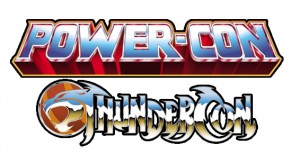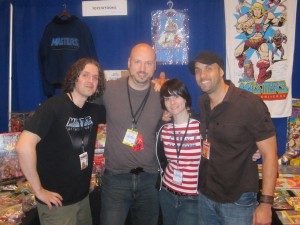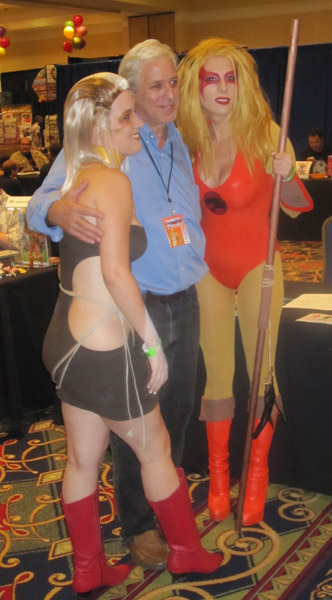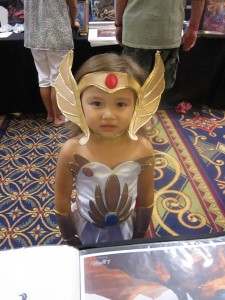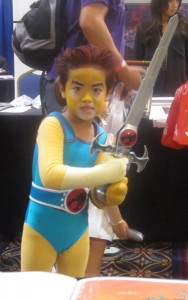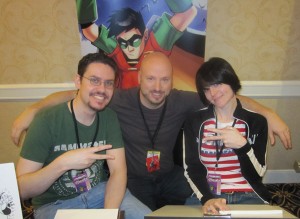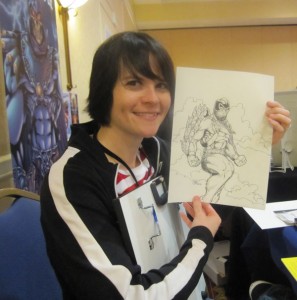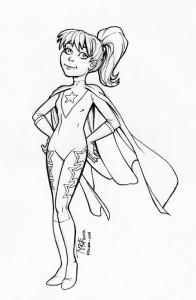The Harsh Realities
Making a comic is tough. Especially at the professional level. I mentioned it earlier, but here are some of the challenges on your journey.
Actually working on a full color print comic is a real undertaking. If you are paying close to professional rates then you’re looking at the pencils and inks, for 22 pages, running around $2200+. Then you have to factor in a colorist which is also expensive. Don’t forget lettering. You may be able to do it yourself, but make sure it looks professional. Most free graphics software will not be up to standard. Lettering can be done in a number of ways, but the professionals use Adobe Illustrator or Manga Studio, and both cost moolah!
If you’re not doing on-demand printing, then you’ll have to pony up more money for a print run, and the smaller the run the more expensive it will be per unit, making it harder for you to make a profit. But if you get that far then the next essential is to get listed in the Previews catalog. This gets you into the system with Comic Book Retailers who can place an order through Previews. If your trying to get into Comic Book stores then you need to take Diamond / Previews seriously and build a relationship with them. You will get much more exposure and more orders than if you don’t. I know this from friends who made the mistake of putting off getting serious about Previews. Do it!
Collaboration
Ideally, you can do the art, colors and lettering all yourself and save a huge amount of money. That, or you can find a collaborator who will work with you for the reward of a percentage of the profit from the sales. But profit from sales from indie comics, even those that make it into Image comics are hard to achieve. As I mentioned, it is a really expensive business for a self-publisher, and working with Image you still have to foot the bill.
Building your team
When I put Once Upon a Caper together (originally called Sovena Red, and then renamed to Once Upon a Super Hero), I had to find an artist and colorist as Leanne was busy on other professional projects. I was impatient and it seemed like the only way to make something happen on my end that could benefit the both of us. I should have just waited.
Here’s what NOT to do: I knew a number of artists in the industry, but they were all committed to projects, so I posted a wanted message at DigitalWebbing and at PencilJack. My inbox was flooded with responses including several from fraudsters posing as legit artists. They were ready to run off with the first payment and never speak to you again. Josh Hoopes is one of the guys I dealt with. Fortunately I wised up before any commitment was made. That’s not to say that it’s just scam artists out there, there are writers / editors offering projects only to drop off the face of the Earth after receiving the finished art without paying. It’s a shady business on both sides.
I genuinely and honesty discourage anyone from posting an ad at such a forum. If you’re not doing the art yourself and need someone else, then REALLY get to know that person as a friend first. I’m not talking about a few emails and a phone call, I’m talking about over a period of months, or longer. Find out who else they have worked with and learn a little about their reputation. You might be so psyched for your project that you feel you are in too much of a hurry to do this research, but I’m telling you, DO THE RESEARCH. Do not rush in with someone new. Sure, maybe it will all work out beautifully for you because you are the Chosen One and nothing in your life has ever gone wrong, but when money is involved (and comics can be massively expensive) be sensible!
My advice, if you HAVE to pay someone, is work out a deal where you pay for each page as it is turned in to you completed. That way you aren’t risking large sums of money at once and you have a carrot to motivate a slacking artist.
For the earliest version of Once Upon a Caper, I did the lettering myself with some editorial help from Leanne. It worked out pretty well, but for the latest revision I actually turned to Leanne’s lettering friend, Bill Tortelini. He did a great job and at a generous rate. Again, friends. Don’t have industry friends? Go make them. Talk to the artists at the conventions. Get their advice, get to know them.
Working with a team
Working with team members can actually be a big obstacle for the comic. Personal lives, or a sudden lack of motivation from just one member of the team can be a huge spanner in the works and seriously set back your plans, especially if you had a deadline such as a debut at an upcoming comic convention. What I’ve learned very slowly is never believe that your team will achieve your deadline. You can set a deadline and work towards it, but have a Plan B and a Plan C, because somebody, somewhere in the production train is going to get sidetracked. Plus nobody likes a slave driver either, and you don’t want to be known as a dick. 
So, if you’re going to work with a team, try to keep it small, and try to work only with people that truly believe in the project. Money doesn’t buy belief or commitment as this is an industry full of artists, and as I mentioned earlier, artists can be inherently flaky. When money is involved this is potentially a very painful lesson for the creator who is investing into the project. And ultimately, is your goal to make that money back? Is it to simply have a portfolio piece to try and launch an ongoing series? Is it to help your resume and start a career on other books?
Build Meaningful Relationships
For writers, one way of getting published is to basically get to know creators and publishers, make friends and an opportunity might come up for you to write a backup piece for an established title. If your project is a pipe dream, then start getting to know artists now so that when you are ready to get it off the ground you have people to turn to for advice and help. Comic Conventions are great for that because they allow face-to-face contact, though I’m sure you can build those relationships effectively online too. Find creators whose work you like. Tell them what you like about their work, buy a copy and get their signature. Get their advice on how they got started. They will be more than happy to talk to you if you are supporting their work at the same time. Well, most of them. 😉
Part 1 – Introduction
Part 3 – Making Webcomics
Part 4 – Promotion
Part 5 – Comic Conventions

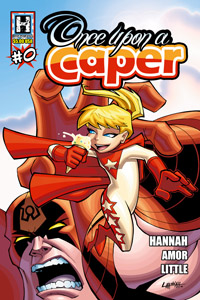
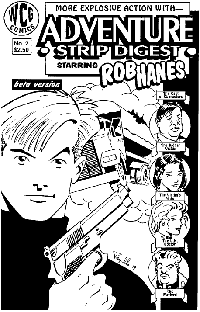
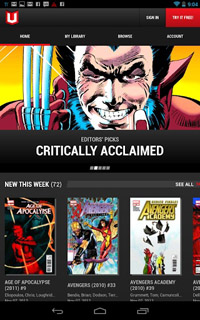 Digital Comics: I offered
Digital Comics: I offered 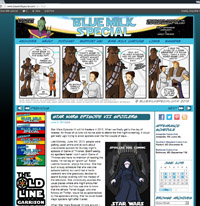
 A very nice thing happened to Leanne and myself last Saturday. We were both honored as Friends of the
A very nice thing happened to Leanne and myself last Saturday. We were both honored as Friends of the 
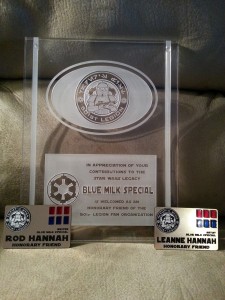
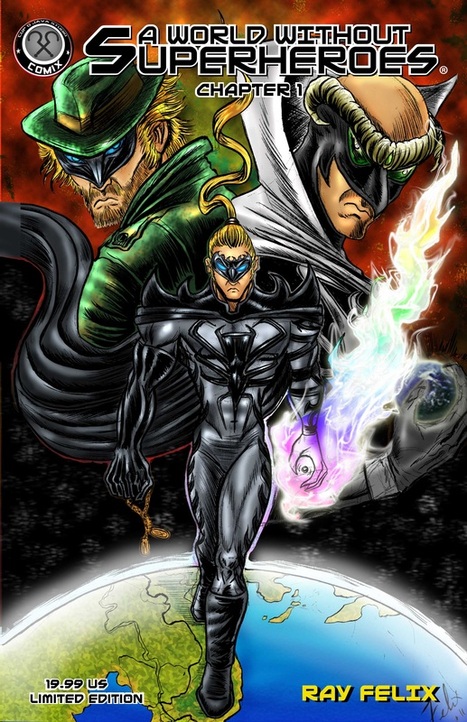 Hello 2013!
Hello 2013! 
 Incredibly, our trip back to the East Coast put a bit of a downer on an otherwise enjoyable weekend escape to LA. Our Monday journey, back to Washington, DC, ended with us being barred from the daily parking garage, along with everyone else at the airport, by a swat team who spent the
Incredibly, our trip back to the East Coast put a bit of a downer on an otherwise enjoyable weekend escape to LA. Our Monday journey, back to Washington, DC, ended with us being barred from the daily parking garage, along with everyone else at the airport, by a swat team who spent the  I’m not a touchy feely person. It’s fine, of course, if its Leanne, but I don’t like physical contact that much, even with friends, especially not with complete strangers. The effect was that I looked like Stephen Hawking in my chair with my bad neck and the human blob beside me, overflowing onto my seat and the narrow airplane aisle. This woman did not have a carry-on bag, rather she had a black plastic trash bag that spilled all over the place throughout the flight. A bag that ultimately ended up at her feet where, because of her size, she could no longer reach it. This did not stop her trying. I looked on blankly… Leanne took a photo of me as I spent most of the time with my back turned away from the small moon beside me . Anyway, it’s over now. We got home around 2am absolutely shattered. We’re picking up the pieces today and finally able to start reflecting on the show itself!
I’m not a touchy feely person. It’s fine, of course, if its Leanne, but I don’t like physical contact that much, even with friends, especially not with complete strangers. The effect was that I looked like Stephen Hawking in my chair with my bad neck and the human blob beside me, overflowing onto my seat and the narrow airplane aisle. This woman did not have a carry-on bag, rather she had a black plastic trash bag that spilled all over the place throughout the flight. A bag that ultimately ended up at her feet where, because of her size, she could no longer reach it. This did not stop her trying. I looked on blankly… Leanne took a photo of me as I spent most of the time with my back turned away from the small moon beside me . Anyway, it’s over now. We got home around 2am absolutely shattered. We’re picking up the pieces today and finally able to start reflecting on the show itself!